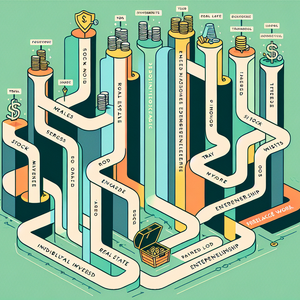The Unseen Workforce: Jobs of the Enslaved in the 1800s

The vast majority of enslaved individuals in the 1800s were engaged in agriculture, particularly in the Southern states, where plantation systems thrived. Cash crops such as cotton, tobacco, and sugar were central to the Southern economy and became pivotal to the entire nation’s economic framework. The invention of the cotton gin in 1793 significantly increased the demand for cotton, making it the leading export in the United States. Enslaved people worked long hours under harsh conditions, often from sunrise to sunset, planting, tending, and harvesting crops. Their labor was physically demanding and grueling, yet it laid the foundation for wealth accumulation among plantation owners and contributed significantly to the growth of the American economy. The profits derived from enslaved labor were reinvested in various sectors, including shipping, banking, and manufacturing, intertwining the institution of slavery with the broader economic landscape of the nation. For example, in 1860, the total value of enslaved people in the U.S. was estimated at approximately $3 billion, making them one of the most significant assets in the American economy at the time.
Domestic Work: The Unsung Contributions
In addition to agricultural labor, many enslaved individuals were employed in domestic roles within the households of their owners. These roles included cooking, cleaning, child-rearing, and managing household tasks. Enslaved domestic workers often possessed skills that required training and experience, such as sewing and culinary arts, which they used to serve their owners and their families. The work of enslaved domestic laborers was crucial to the daily functioning of households, particularly in urban areas. They allowed their owners to focus on business and societal obligations, often at the cost of their personal freedom and well-being. The intimate nature of domestic work also created complex relationships where enslaved individuals sometimes formed bonds with the families they served. However, these relationships were fraught with tension, as the enslaved remained trapped in a system that denied them autonomy and basic human rights. For instance, the stories of female enslaved workers highlight the dual burden of labor and sexual exploitation, adding another layer to the complexity of their experiences.
Skilled Trades: The Hidden Expertise
While most enslaved labor was manual and agricultural, a significant number also worked in skilled trades such as blacksmithing, carpentry, and masonry. These roles required specialized training and knowledge, allowing enslaved individuals to develop competencies that were highly valued in the marketplace. Many enslaved artisans were able to earn money through side work or were hired out by their owners, providing a semblance of financial independence, albeit within the constraints of slavery. The contributions of skilled enslaved laborers extended beyond individual households; they helped build infrastructure, including roads, bridges, and homes, playing a crucial role in the physical development of American society. Their expertise and craftsmanship were often essential to the success of various projects, yet they received little acknowledgment for their contributions, as their labor was viewed as property rather than a valuable human asset. Notably, skilled enslaved workers were often employed in urban areas where their talents could be utilized in construction and manufacturing, adding another layer of economic complexity to the landscape of the time.
Implications for Society and Economy
The labor of enslaved individuals in the 1800s had profound implications for the development of American society and economy. The wealth generated from enslaved labor fueled the growth of the Southern economy and had ripple effects throughout the nation. It enabled the expansion of industries that depended on cotton, including textiles in the North, creating an intricate economic interdependence between the regions. Moreover, the exploitation of enslaved labor laid the groundwork for systemic inequalities that persisted long after the abolition of slavery. The societal structures that emerged from this exploitation created lasting disparities in wealth, education, and social mobility that continue to affect African American communities today. The legacy of slavery can still be seen in contemporary discussions about economic justice and equality, underscoring the importance of recognizing the historical context of these issues. Understanding the labor contributions of enslaved individuals is crucial not only for acknowledging their hardships but also for recognizing their resilience and influence on the fabric of American history.
The jobs of enslaved individuals in the 1800s were foundational to the economic and social structures of the United States. Their contributions, often rendered invisible in historical narratives, were vital to the agricultural, domestic, and skilled labor sectors. By shedding light on the experiences of this unseen workforce, we can foster a more nuanced understanding of American history—one that recognizes the profound impact of slavery on the nation’s development. Acknowledging the labor of enslaved individuals not only honors their legacy but also serves as a reminder of the importance of justice and equality in the ongoing struggle for civil rights. Understanding this history is essential for addressing the lingering inequalities that still resonate in today's society, ensuring that the contributions of all individuals are recognized and valued.
Cultural Historian
Universities, museums, cultural institutions, non-profit organizations
Core Responsibilities
Research and analyze historical documents and artifacts to deepen the understanding of cultural narratives, particularly related to marginalized communities.
Develop educational programs and materials that highlight the contributions of underrepresented groups in history.
Collaborate with museums and educational institutions to curate exhibitions that promote awareness of historical injustices and their contemporary implications.
Required Skills
Strong analytical and research skills, with a focus on primary source material.
Excellent written and verbal communication abilities for presenting findings to diverse audiences.
Familiarity with digital humanities tools to enhance historical presentations and outreach.
Social Justice Educator
Educational institutions, non-profits, community centers, advocacy groups
Core Responsibilities
Design and implement curricula that address systemic inequalities and historical injustices, emphasizing the legacy of slavery and its impact on modern society.
Facilitate workshops and discussions that encourage critical thinking about race, class, and historical narratives among students and community members.
Collaborate with local organizations to promote outreach initiatives that foster community engagement and awareness.
Required Skills
Strong background in education, sociology, or history, with a commitment to equity and inclusion.
Exceptional communication and interpersonal skills to engage diverse audiences.
Experience in program development and evaluation to assess educational impact.
Genealogist specializing in African American History
Genealogy firms, historical societies, independent consultancy
Core Responsibilities
Conduct genealogical research to trace the lineage and heritage of African American families, focusing on the impacts of slavery and migration.
Compile and publish research findings that contribute to the understanding of historical narratives and familial connections.
Assist clients in uncovering their ancestry, providing insights into historical contexts that shaped their family's experiences.
Required Skills
Proficiency in historical research methods and familiarity with genealogical databases and records.
Strong analytical and problem-solving skills to navigate complex historical records.
Excellent communication skills for presenting research findings in a clear and engaging manner.
Community Organizer focused on Racial Equity
Non-profit organizations, advocacy groups, community development agencies
Core Responsibilities
Mobilize community members around issues of social justice, particularly those related to the legacy of slavery and systemic inequality.
Develop and lead campaigns that advocate for policy changes and promote awareness of historical injustices.
Build coalitions with local organizations to strengthen community ties and amplify voices of marginalized groups.
Required Skills
Strong leadership and organizational skills, with a passion for social justice advocacy.
Effective communication and public speaking abilities to engage diverse stakeholders.
Experience in grassroots organizing and campaign strategy development.
Historical Archivist
Libraries, museums, universities, historical societies
Core Responsibilities
Organize and preserve historical documents, records, and artifacts, with a focus on materials related to slavery and African American history.
Assist researchers and the public in accessing archival materials that illuminate the experiences of enslaved individuals and their descendants.
Develop digital archives and online resources to increase public engagement with historical content.
Required Skills
Knowledge of archival science and preservation techniques, particularly concerning sensitive materials.
Strong attention to detail and organizational skills to manage large collections of information.
Proficiency in digital archiving tools and databases to enhance accessibility.


